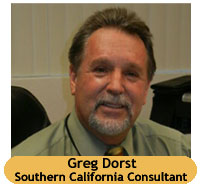California Lawyers Association
The Healthy Lawyer (Advocati Sani): How to Promote Clear Thinking During Stressful Times
By Greg Dorst JD, CADC II
Consultant to The Other Bar

If you’re wondering how to develop a sense of inner strength and calm, even as stress threatens to send you spinning, look no further than the example set by Navy SEAL Commander Mark Divine.
Divine became one of this country’s most notable Navy SEALs, serving this nation for 20 years and leading his team on reconnaissance, training and classified missions in 45 different countries around the world. This innovative warrior noticed that the stress of battle with its inherent danger and uncertainty increased combatant’s heartrate and blood pressure to such an extent that team members were unable to make difficult decisions when they needed to most. This natural response to stress affected the lives of individual team members as well as the effectiveness and safety of the team itself. Commander Divine realized that the solution to this problem was not equipment related nor did it have anything to do with marksmanship or demolition skills; the problem centered in the mind. In setting forth a new way of preparing his team for the stress of being Navy SEALs, he harkened back to the time he spent learning kung fu under a 10th Degree Master who used the art as a vehicle for teaching Zen meditation practices. As team leader he began to teach his SEALs meditation, mindfulness and visualization techniques giving them unprecedented control over their blood pressure and heartrate. The goal was to separate the stressful situation from the reaction to stress. He demanded that his team learn these skills to help them to stay alive and perform expertly under pressure. These skills are physical, mental, emotional, intuitive and spiritual and when they operate collectively, Commander Divine calls them, “The Unbeatable Mind.” This “mind” became the tool responsible for individual and team survival.
The accomplishments of Navy SEAL Commander Mark Divine demonstrate how important practices which develop inner strength and calm can be. His story is instructive for lawyers as many of the stressors associated with being a Navy SEAL are endemic to lawyering. Effective critical thinking skills during stressful times may be enhanced or made possible by mastering contemplative skills such as meditation, mindfulness and visualization. Moreover, physical, emotional and psychological health can be greatly enhanced by taking just a few minutes out of the day to calmly center ourselves. These practices are now a part of what is called “lawyer well-being.”
A new National Task Force on Lawyer Well-Being takes a holistic approach to lawyer wellness. This project is powered by a coalition of entities committed to catalyzing a movement to improve well-being in the legal profession. In August 2017, the task force published a comprehensive report titled The Path to Lawyer Well-Being: Practical Recommendations for Positive Change. The report spotlights a 2016 study of nearly 13,000 practicing lawyers which found that too many lawyers are not thriving. The report does not stop at identifying problems. It also offers concrete, actionable recommendations for stakeholders across the profession. These ideas are taking hold in state and local lawyers’ associations here in California.
May 4-8, 2020, brought us Lawyer Well-Being Week. I and the other members of CLA’s Wellness Committee discussed the benefits of healthy physical, emotional/psychological and spiritual practices in creating and maintaining what I call “holistic competence.” Certain practices may be utilized to relieve discord in one area of a person’s life while providing dynamic ancillary outcomes in many other equally important aspects of life. In other words, a holistic approach is an integrated approach, recognizing that the things that we think and do touch all areas of our lives. We discussed the benefits of mindfulness and meditation, with many members sharing their own personal experiences around the changes they have been able to achieve through contemplative practice. I know the benefits personally and use these techniques in helping lawyers to recover from a seemingly hopeless state of mind and body often referred to as addiction. Moreover, I teach these practices as forms of substance use disorder and mental illness prevention to lawyers who just want to be better at what they do.
Well-being concepts that include care for our interior or “thought life” are becoming much more accepted in the western world. Various forms of meditation were developed in Taoist China and Buddhist India in or about the 6th century BCE. Mindfulness practices began at about the same time, always with the purpose of relieving suffering. To some extent, the ancient origin of these practices and the nature of the people who, over time adopted these ways have hindered their popularity in “rational,” western professional life. Until recently, meditation and mindfulness as well as visualization were thought of as practices utilized by people who live fringe lifestyles. Now, physicians and psychologists routinely tout the benefits of these skills in increasing work productivity, promoting personal happiness and lengthening lives. What was once considered part of a “fringe lifestyle” now enjoys mainstream acceptance. Times have changed.
Beginning a contemplative practice requires only willingness. For meditation, a great resource is Tara Brach, an American psychologist, author, and proponent of healing meditation. She founded the Insight Meditation Community of Washington, D.C. For mindfulness practices, a great place to start is Jon Kabat-Zinn. He is an American professor emeritus of medicine and the creator of the Stress Reduction Clinic and the Center for Mindfulness in Medicine, Health Care, and Society at the University of Massachusetts Medical School. These resources, and others curated on the CLA Wellness Committee’s web page, will open up a whole new world for the willing lawyer. After all, our health is our fortune.
As always, I can be reached at gdorst2@gmail.com. I welcome ideas for future columns, constructive discussions or just questions about what we can do to make our lives better, richer and more productive.
Advocati Sani
